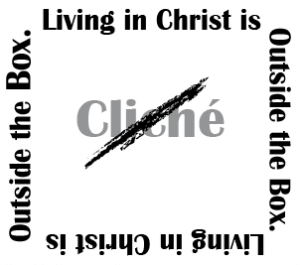Beyond Cliché
Proverbs is familiar territory for most of us, particularly if we grew up in the days of learning doctrinal texts and Sabbath School memory verses. I can still remember many of them:
 Prov 1: 7 The fear of the Lord is the beginning of knowledge: but fools despise wisdom and instruction.
Prov 1: 7 The fear of the Lord is the beginning of knowledge: but fools despise wisdom and instruction.
Prov 3: 5, 6 Trust in the Lord with all thine heart; and lean not unto thine own understanding. In all thy ways acknowledge him, and he shall direct thy paths.
Prov 3: 13-15 Happy is the man that findeth wisdom, and the man that getteth understanding. For the merchandise of it is better than the merchandise of silver, and the gain thereof than fine gold. She is more precious than rubies: and all the things thou canst desire are not to be compared unto her.
Prov 4: 5, 6 Get wisdom, get understanding: forget it not; neither decline from the words of my mouth. Forsake her not, and she shall preserve thee: love her, and she shall keep thee.
The list goes on, of course. Like many people my age we learned them at the insistence of our parents and often before we really understood what they meant. The danger is that these proverbs remain as erudite statements of action and consequence rather than being meaningful and making a difference in the way we live.
A lot of the conversations about wisdom that I have heard this month have used phrases like these: “God is the source of wisdom,” “We need to seek God first,” “Jesus will give us wisdom,” and so on. While there is important truth in such statements, we need to really think about what they mean, or they become just part of the Christian vocabulary, rather than our own experience.
Getting your wisdom from God does not mean that you use the Bible, Spirit of Prophecy, or the Promise Box as some sort of “lucky dip” when you have to make a decision. I have heard stories about people who, having had to make a decision, opened their Bible and used the first verse they read to give them a clue as to what to do. I am not saying that it has not happened that way; but there are other things we can do as a work practice for decision making while still relying on God.
When God said, “Let us make man in our image, after out likeness,” (Gen 1: 26) I don’t think he meant that we were just to look like Him, but rather that we would enjoy the ability to think like Him, to make decisions and solve problems. When I pray before making an important decision, I pray not for an answer on a plate, but for the wisdom to make the appropriate choice. We rely on God for wisdom, but we need to do our own homework. For example, if we are looking for a job, it is appropriate to find out all we can about the job and the employer before making a decision to apply for the job.
God-centred wisdom means that we look beyond satisfying self or others in our decision but rely on the greater moral principles that God has designed and demonstrated. It is a hard thing for some of us to think beyond ourselves. Such wisdom does not come from memorizing textbooks but from experience. True wisdom comes from an experiential relationship with God and the people with whom we have contact every day. A wise person may make mistakes but will learn from those mistakes to make better decisions the next time.
Note that the book of Proverbs has a lot to say about choosing your friends. I am a great believer in the importance of our community of believers because often it is within the context of sharing with those who have a common interest that we develop a community sense of wisdom. In our modern world, where so many decisions are made on the basis of personal preference, using the common sense developed within a community of believers who put God first helps us make wise decisions.
